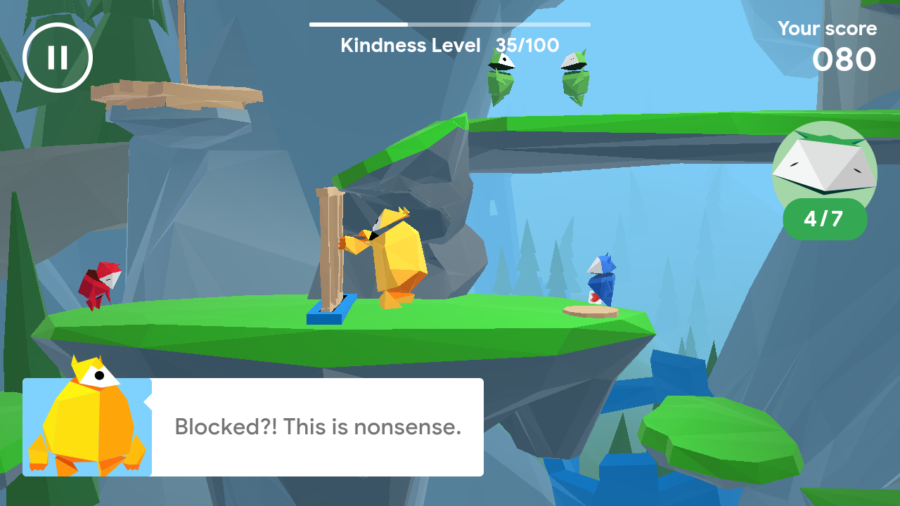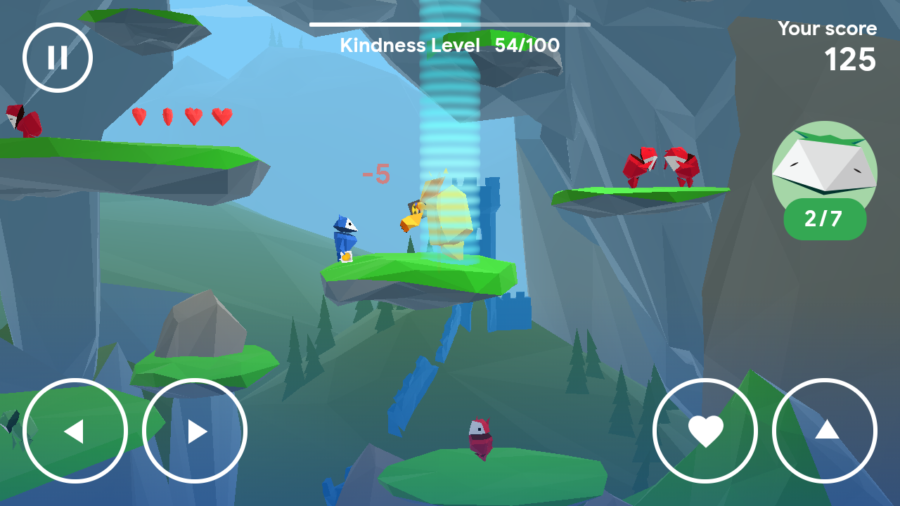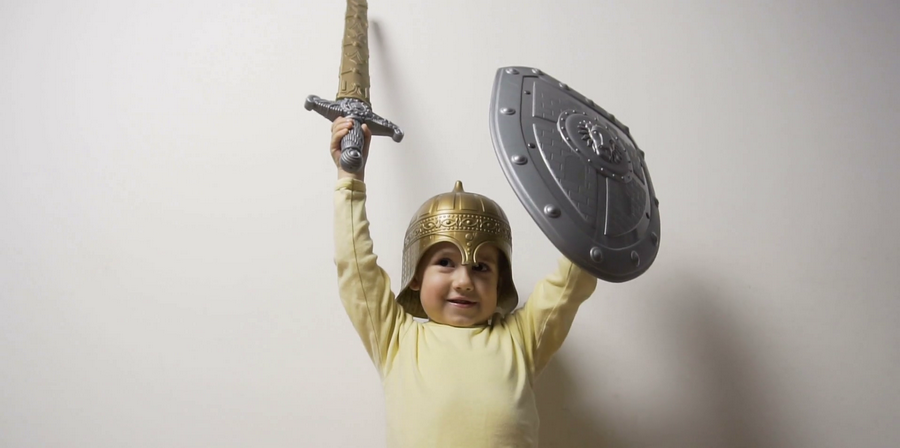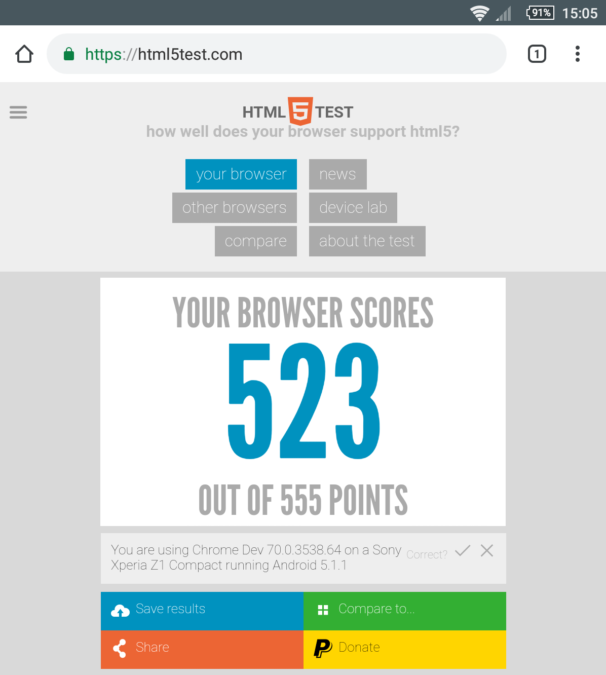The resource-intensive delights of HTML-5 and the moral character of the Internet user according to Google.

Not all modern smartphones are fast enough to handle a 3D-hung HTML-5 website. But everyone is striving to create such sites, rich in active design elements, all kinds of inserts and other laces. Meanwhile, the discontent accumulated by the owners of inexpensive smartphones falls on their interlocutors. And what have Google and browsers to do with it?
Content
- Hardest sites
- HTML-5-friendly browser
- conclusions
Hardest sites

Contrary to the opinion of some Internet citizens, it is not at all the playback of streaming video with a high bitrate is a super task for the hardware of the smartphone and its browser. It is possible that the most difficult sites include online pages with Excel spreadsheets one and a half kilometers long, but this is a purely special case, the lot of the overwhelming minority. But browser 3D games can serve as such a yardstick. Yes, sometimes it is quite difficult to perceive a 3D potato jumping on the screen as just a graphic design of a website, but it is so. There are many browser-based 3D games, and some of them require additional libraries or extensions to be installed, but this only indicates bad code or the presence of prehistoric rudiments in it. Based on these considerations, the product of the industry leader was chosen – Google, which actively promotes HTML-5 technology, the official release of which took place in 2014 (most recently). Be Internet Awesome is a Google product and site for parents and their children that is designed to teach both of them to behave decently on the World Wide Web. For parents, text is provided, and for children – the browser game Interland, which is written in accordance with all the canons of HTML-5 and is a serious burden for any smartphone.

Perhaps, it is worth saying a few words what, according to Google, 'child's good online behavior' is.
So, the child must:
- Carefully share the received news, 'share' it only to trusted persons. Keep the personal information of family and friends private.
- Do not trust too generous offers from people and companies, so as not to become a victim of phishing (identity theft when filling out a fake form on the site).
- Learn to use different passwords on different sites, make them as complex as possible.
- Use the Internet to spread good, protect the weak, help the helpless, respect the opinions of others. Block internet hooligans, report any bullying cases to Google Support on time.
- In doubtful situations, seek advice from loved ones, i.e. parents, teachers, etc.

After clicking on the 'Explore INTERLAND' banner, the contents of the browser game begin to flow into the device's RAM and decode. On a relatively normal PC, this process takes about 2-3 seconds, on a Sony Xperia Z1 Compact (Snapdragon 800, 2 GB RAM) smartphone – about 6 seconds, but we just go to the game menu. After selecting one of the four mini-games and pressing the 'Play' button, the boot process continues and repeats – on a PC 2-3 seconds, on a Snapdragon 800 5-6 seconds.

The Kind Kingdom game is a typical multi-level skipping-pick-up. During the game, the creature we control (looks like a blue goldfinch with ears, but no feathers) collects hearts and gives them to the 'offended Internet users' – the same goldfinches, only crying and of a different color. In the course of the game, you can find simple puzzles and big yellow Internet trolls who scoff at the 'goldfinches' for nothing.

To help the victim, the player must press a button that is separately standing on the floor and block the troll.

Another method of dealing with the 'bad troll' is to inform them on time.
In this allegorical form, Google seems to be raising a child in accordance with its moral criteria described above. Does this work in practice? It's hard to say, but a child on his own is unlikely to be aware of all these thought forms and will be able to connect them with the harsh reality that surrounds him. But if a parent sits next to him and explains everything, then completely.
What will the Google-trained internet knights do when the last troll is banned? Maybe they will lash out at ordinary users, deciding “who is more right” or “who understands morality more correctly”? There are no answers to these questions yet, but we digress, let's return to our smartphones. On a PC, complex HTML-5 code is executed (the game process) without the slightest delay, but on a smartphone with Snapdragon 800 no, no, and it will stumble for a split second. You can play on the old flagship, however.
Dear readers, it so happened that not a single more modern device was at hand, so I ask you to follow the Interland link and check the performance of your device in practice. And also share the results in the comments with technical information (smartphone, browser, approximate game load time, impressions).
HTML-5-friendly browser
The selection criterion for this question can be not only the bare performance when opening a WEB page, but more importantly, the number of HTML-5 features that the browser supports. Despite the official announcement of the HTML-5 standard in 2014, its development did not stop and continues to this day. The development is carried out not only by the W3C (as it is written in Wikipedia), but also by other players, for example, the Khronos group, which is intensively introducing the WebGL drawing method into site building. Watch the video below for an official demo of Khronos technology.
For this reason, the best browser for rendering HTML-5 pages may be one that supports not only the standard but also the stable experimental HTML-5 features. Not shying away from the old. In this direction of technical development that still mess reigns, an unprepared person will quickly be loaded with unnecessary information and will lose interest in the topic for a long time.
There are several WEB-resources that offer to evaluate browser support for HTML-5 capabilities without installing a separate test application. One of the best quality and balanced is Html5test (https://html5test.com/).
Why is this issue given so much attention? As you know, the world of users Android – smartphones is divided into those who prefer a set of highly specialized applications for each task, and those who are used to one multifunctional application (browser). In the second case, the browser should be able to do everything. By examining the most common web browsers, you can rate them for HTML-5 support. They will be located like this:
- Google Chrome and all other browsers based on the Chromium shell and branches of the WebKit engine (including Opera and Yandex) have implemented most of all the demanded functions, except for exotic things like streaming directly from the browser.
- Browsers using hybrid engines such as Maxthon. Such browsers perform all the basic functions of HTML-5, but are devoid of some trifles. For example, Maxthon 5 does not support WEB notifications. Or gamepad support.
- Internet Explorer users and other connoisseurs of antiques do not have to worry, full support for HTML-5 does not threaten them.

From myself, I will add that I use the Kiwi mobile browser, which lives on w3bsit3-dns.com, does not raise questions from the Kaspersky antivirus and is a fast version of Chrome with excesses cut out in the form of binding to the system (in the Android OS itself) Google account.
conclusions
Websites are getting 'heavier' every year, and smartphone makers are responding with increased chipset performance and more RAM, making smartphones more and more expensive. At this point in time, devices of the era Android 4.4 are already having difficulty coping with HTML-5 3D objects, and with its development they will inevitably become obsolete and become unnecessary. The anger of the owners of inexpensive smartphones is growing and is ready to pour out on everyone around, but thanks to Google, a new generation of fighters for good is already growing up, who will block bad users and bring information to the administration in time.
Friends, do you think the 'heavy internet' has already become one of the reasons for buying a new smartphone? How good is the camera or the performance in common applications? Or not yet?


